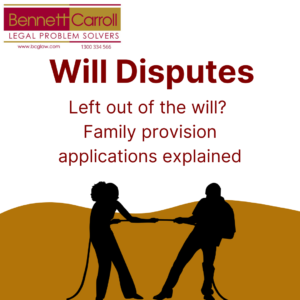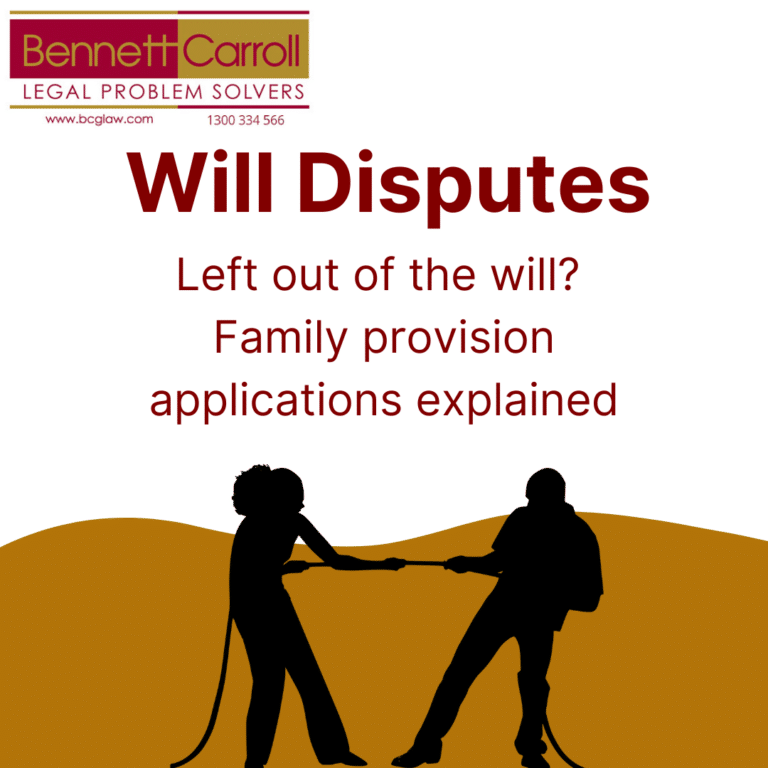
Wills are designed to provide a deceased persons’ family and friends with clarity as to how their estate’s assets will be distributed. But what happens when a family member is left out? What if the provision is inadequate? Or, what if the deceased person dies without a will?
Wills are designed to provide a deceased persons’ family and friends with clarity as to how their estate’s assets will be distributed.
But what happens when a family member is left out a will? What if the provision is inadequate in the estate? Or, what if the deceased person dies without a will?
Under section 41 of the Succession Act 1981 (Qld) if any person dies, with or without a will, and no or inadequate provision is made from the estate for proper maintenance and support of an eligible person, the court can make an order for provision from the estate.
Who is eligible?
Eligible persons who may apply include the deceased person’s spouse, child or dependant.
A ‘child’ means any child, stepchild or adopted child of the deceased person. A person will be a stepchild where they are the child of the deceased person’s spouse and a stepchild/step-parent relationship existed between them and the deceased person. This relationship will stop in the event of divorce, termination of the civil partnership or ending of the de facto relationship, between the deceased person and the stepchild’s parent.
A ‘dependant’ means any person who was being wholly or substantially maintained or supported by the deceased person at the time of the deceased persons’ death, such as:
- a parent of the deceased person;
- the parent of a surviving child under the age of 18 years of the deceased person; or
- a person under the age of 18 years.
The court will not make an order for a dependant, unless it can be established that it is proper that some provision be made for the dependant given the need of the dependant for continued support.
What can the court order?
The court can order the following:
- conditions be attached to the order as the court thinks fit;
- the provision be a lump sum or periodic payment, if the court thinks fits; or
- refuse to make an order if the applicant’s character or conduct disentitles him/her to the benefit of the order.
When can the application be brought?
The personal representative must be given written notice of the applicant’s intention to lodge a family provision application within six (6) months of the deceased person’s death. The proceedings must be brought within nine (9) months after the deceased’s death, unless the Court otherwise directs.
Will a family provision order amend the will?
If the deceased person leaves a will the provisions in the order will be considered part of the will.
Call us on or email and safeguard your interests every step of the way- We are your legal problem solvers.







